13 start with W start with W
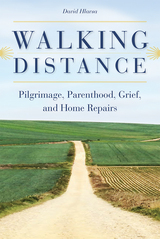
Though walking more than 400 miles across the north of Spain turned out to be more difficult than they had anticipated, after a series of misadventures, including a brief stay in a Spanish hospital, they arrived in Santiago. Shortly after their return to Seattle, Lisa became pregnant, and the hardships of the Camino were no comparison to what followed: the stillbirth of their first son and Lisa’s harrowing second pregnancy.
Walking Distance is a moving and disarmingly funny book, a good story with a happy ending—the safe arrival of David and Lisa’s second son, Benjamin. David and Lisa get more than they bargained for, but they also get exactly what they wanted: a child, a solid marriage, and a richer life.
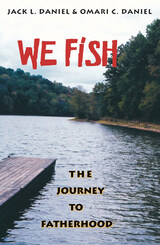
We Fish is the tale of a father and son's shared dialogue in poetry and in prose, memoir and reflection, as they delight in their time spent fishing while considering the universal challenge of raising good children. Their story and their lesson have the power to teach today's young African American men about friendship, family, and trust; and the potential to save a generation from the dangers of the modern world and from themselves.
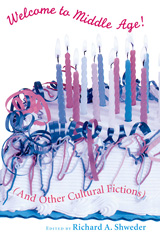
In this volume, anthropologists, behavioral scientists, and historians explore topics ranging from the Western ideology of "midlife decline" to cultural representations of mature adulthood that operate without the category of middle age. The result is a fascinating, panoramic collection that explores the myths surrounding and the representations of mature adulthood and of those years in the life span from thirty to seventy.
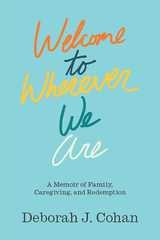
ESS Public Sociology Award
Recommended Book in Domestic Violence by DomesticShelters.org
How do you go about caregiving for an ill and elderly parent with a lifelong history of abuse and control, intertwined with expressions of intense love and adoration? How do you reconcile the resulting ambivalence, fear, and anger?
Welcome to Wherever We Are is a meditation on what we hold onto, what we let go of, how we remember others and ultimately how we’re remembered. Deborah Cohan shares her story of caring for her father, a man who was simultaneously loud, gentle, loving and cruel and whose brilliant career as an advertising executive included creating slogans like “Hey, how ‘bout a nice Hawaiian punch?” Wrestling with emotional extremes that characterize abusive relationships, Cohan shows how she navigated life with a man who was at once generous and affectionate, creating magical coat pockets filled with chocolate kisses when she was a little girl, yet who was also prone to searing, vicious remarks like “You’d make my life easier if you’d commit suicide.”
In this gripping memoir, Cohan tells her unique personal story while also weaving in her expertise as a sociologist and domestic abuse counselor to address broader questions related to marriage, violence, divorce, only children, intimacy and loss. A story most of us can relate to as we reckon with past and future choices against the backdrop of complicated family dynamics, Welcome to Wherever We Are is about how we might come to live our own lives better amidst unpredictable changes through grief and healing.
Questions for Discussion (https://d3tto5i5w9ogdd.cloudfront.net/wp-content/uploads/2020/05/11140346/Cohan_Discussion.docx)
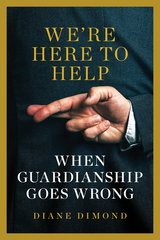
The state-run guardianship system, called conservatorship in some states, is largely unregulated, ill-understood, and increasingly populated by financially motivated predators. Just how the secretive world of guardianship works and its real-life effects remained a mystery to most until the very public case of pop star Britney Spears. It suddenly became clear that those conscripted into the system lose all their civil rights in the process. Currently, there are an estimated 1.5 to 2 million Americans under court control, but precise figures are not known as no government entity keeps track of citizens who have lost the right to determine their own fate.
Established in the late 1800s, the guardianship system was designed to assist the most vulnerable citizens: the elderly and the physically or intellectually disabled. While guardianship has been beneficial to many “wards of the court,” this little-understood process can be a judicial rollercoaster from which there is seldom an escape, and which often leads to financial devastation for the ward and their families. Each year, fifty billion dollars belonging to wards are placed under the control of court appointees, an obvious temptation to bad actors who are in a position to control these funds. As investigative journalist Diane Dimond discovers, the number of exploitive and abusive guardianship cases nationwide demands our urgent attention. This book also provides concrete steps that families can take to protect themselves, as guardianship can happen to any one of us at any time.
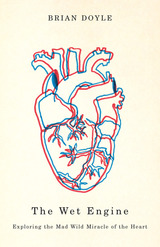
In this poignant and startlingly original book, Brian Doyle examines the heart as a physical organ—how it is supposed to work, how surgeons try to fix it when it doesn’t—and as a metaphor: the seat of the soul, the power house of the body, the essence of spirituality. In a series of profoundly moving ruminations, Doyle considers the scientific, emotional, literary, philosophical, and spiritual understandings of the heart—from cardiology to courage, from love letters and pop songs to Jesus. Weaving these strands together is the torment of Doyle’s own infant son’s heart surgery and the inspiring story of the young heart doctor who saved Liam’s life.
The Wet Engine is a book that will change how you feel and think about the mysterious, fragile human heart. This new paperback edition includes a foreword by Dr. Marla Salmon, dean of the University of Washington School of Nursing.
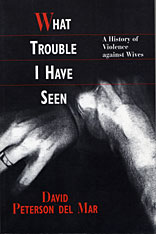
It was 1869 and Sarah Moses, with "a very black eye," told her father: The world will never know what trouble I have seen. What she'd seen was violence at the hands of her husband. Does the world know any more of such things today than it did in Sarah's time?
Sarah, it so happens, lived in Oregon, that Edenic state on the Pacific Coast, and it is here that David Peterson del Mar centers his history of violence against wives. What causes such violence? Has it changed over time? How does it relate to the state of society as a whole? And how have women tried to stop it, resist it, escape it? These are the questions Peterson del Mar pursues, and the answers he finds are as fascinating as they are disturbing.
Thousands of thickly documented divorce cases from the Oregon circuit courts let us listen to voices who often go unheard. These are the people who didn't keep diaries or leave autobiographies, who sometimes could not write at all. Here they speak of a society that quietly condoned wife beating until the spread of an ethos of self-restraint in the late nineteenth century. And then, Peterson del Mar finds, the practice increased with a vengeance with the florescence of expressive individualism during the twentieth century.
What Trouble I Have Seen also traces a dramatic shift in wives' response to their husbands' violence. Settler and Native American women commonly fought abusive mates. Most wives of the late nineteenth century acted more cautiously and relied on others for protection. But twentieth-century privatism, Peterson del Mar discovers, often isolated modern wives from family and neighbors, casting abused women on the mercy of the police, women's shelters, and, most important, their own resources. Thus a new emphasis on self-determination, even as it stimulated violence among men, enhanced the ability of women to resist and escape violent husbands.
The first sustained history of violence toward wives, What Trouble I Have Seen offers remarkable testimony to the impact of social trends on the most private arrangements, and the resilience of women subject to a seemingly timeless crime.
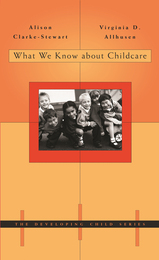
Nearly three-quarters of American mothers work full- or part-time--usually out of financial necessity--and require regular child care. How do such arrangements affect children? If they are not at home with their mothers, will they be badly behaved, intellectually delayed, or emotionally stunted?
Backed by the best current research, Alison Clarke-Stewart and Virginia Allhusen bring a reassuring answer to parents' fears and offer guidance for making difficult decisions. Quality child care, they show, may be even more beneficial to children than staying at home. Although children who spend many hours in care may be unruly compared with children at home, those who attend quality programs tend to be cognitively ahead of their peers. They are just as attached to their mothers and reap the additional benefits of engaging with other children.
Ultimately, it's parents who matter most; what happens at home makes the difference in how children develop. And today's working mothers actually spend more time interacting with their children than stay-at-home mothers did a generation ago.
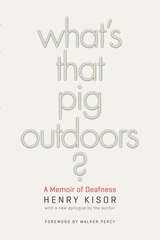
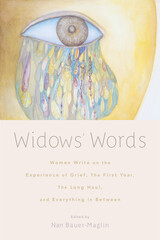
Some were widowed young, while others were married for decades. Some cared for their late partners through long terminal illnesses, while others lost their partners suddenly. Some had male partners, while others had female partners. Yet each of these women faced the same basic dilemma: how to go on living when a part of you is gone.
Widows’ Words is arranged chronologically, starting with stories of women preparing for their partners’ deaths, followed by the experiences of recent widows still reeling from their fresh loss, and culminating in the accounts of women who lost their partners many years ago but still experience waves of grief. Their accounts deal honestly with feelings of pain, sorrow, and despair, and yet there are also powerful expressions of strength, hope, and even joy. Whether you are a widow yourself or have simply experienced loss, you will be sure to find something moving and profound in these diverse tales of mourning, remembrance, and resilience.
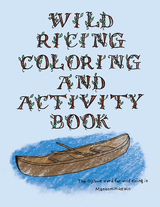

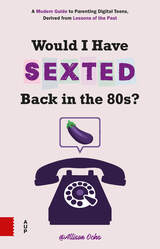
READERS
Browse our collection.
PUBLISHERS
See BiblioVault's publisher services.
STUDENT SERVICES
Files for college accessibility offices.
UChicago Accessibility Resources
home | accessibility | search | about | contact us
BiblioVault ® 2001 - 2024
The University of Chicago Press









